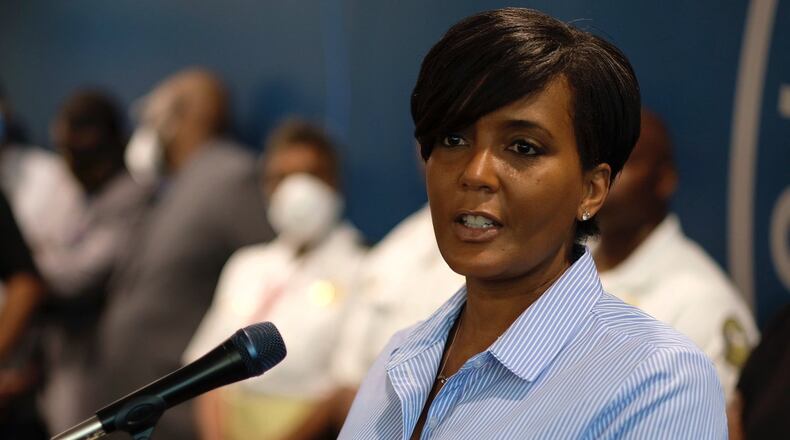Nearly half of the $88.5 million in federal CARES Act money being provided to the city of Atlanta will go towards assisting small businesses and renters impacted by the COVID-19 pandemic, according to government documents.
But preliminary statistics indicate that the $44 million — equally divided between both groups — won’t go nearly far enough to meet the needs.
“As courts reopen and evictions resume, we are approaching a cliff that could result in thousands becoming homeless,” according to a Power Point presentation prepared by Terri Lee, Atlanta’s chief housing officer. “We anticipate that 10,000 to 20,000 families in the City of Atlanta may need assistance paying their rent due to COVID hardships.”
Lee told the Atlanta City Council’s Community Development and Human Services Committee earlier this week that the city had identified 29,000 households in the city who work in industries that put them at risk of being laid off and who make less than $50,000 per year.
The $22 million will provide assistance to only an estimated 6,700 households.
Matt Westmoreland, chairman of the Community Development and Human Services Committee, told the Atlanta Journal-Constitution that the plan for spending the CARES Act money was the product of weeks of collaborative negotiations between the City Council and Mayor Keisha Lance Bottoms' administration.
"These dollars will help thousands of families," he said. "But the numbers highlighted by the administration show the need for us to do even more in the area of housing affordability in the weeks and months ahead."
To qualify for the money, a household’s income must be 60% of the area’s median income — $4,040 per month for a family of four, according to Lee’s presentation.
Households will have to demonstrate that they are unable to pay rent, have an existing lease and don’t receive other rental subsidies.
Priority will be given to families with children, lower income earning households, and other vulnerable populations, such as elderly, veterans, and those with disabilities.
The city has capped the CARES Act rental assistance at $1,000 per month for three months and it will be paid directly to landlords.
The Atlanta City Council is expected to approve the plan at its next meeting on July 6. But an application process for eligible renters will still have to be finalized.
As far as COVID-19’s impact on small businesses, at least one preliminary analysis reveals that the pandemic in Atlanta was particularly devastating.
A JPMorgan Chase Co report this month sampled 1.3 million small firms across the nation and found that at the onset of COVID-19 in April small business cash balances — the amount of money in a business' bank account — declined in every city, but most steeply in metro Atlanta, where balances fell by 21%.
The amount of small businesses that will receive relief from the $22 million in CARES Act money has yet to be determined because it’s uncertain how many applications Invest Atlanta — the city’s economic development agency who will distribute the funds — will receive.
To be eligible for grants up to $40,000, businesses must have active city business licenses, fewer than 250 employees, been in operation as of March 1, 2019, and demonstrate financial losses because of the pandemic.
Those businesses can also apply for up to $10,000 of technical assistance, such as consultants to help them establish new business models consistent with the Centers for Disease Control and Prevention requirements to safely reopen.
Non-eligible businesses include those that receive more than a third of their income from gambling activities, adult businesses, corporate-owned franchises and businesses who have already received more than $50,000 in grant money.
Other uses for the city's $88 million in CARES Act funding include $8 million for COVID-19 testing, roughly $13 million in city payroll expenses related to responding to the pandemic, $7 million to care for and prevent the spread of he pandemic among the homeless, among other expenditures.
About the Author
Keep Reading
The Latest
Featured




